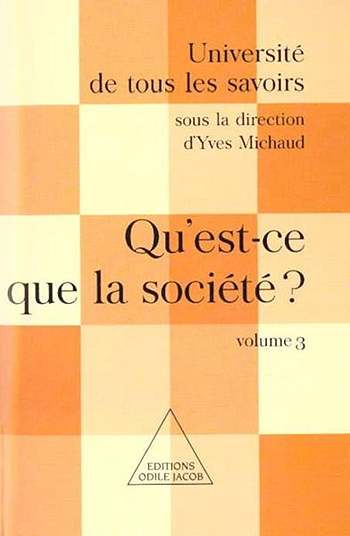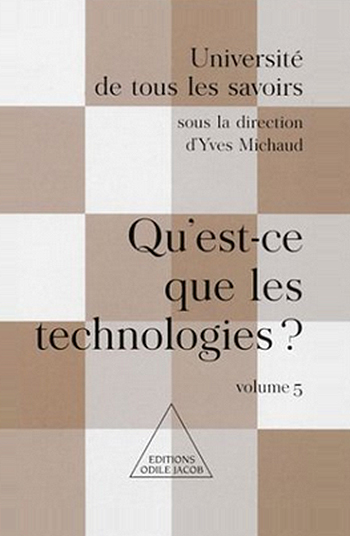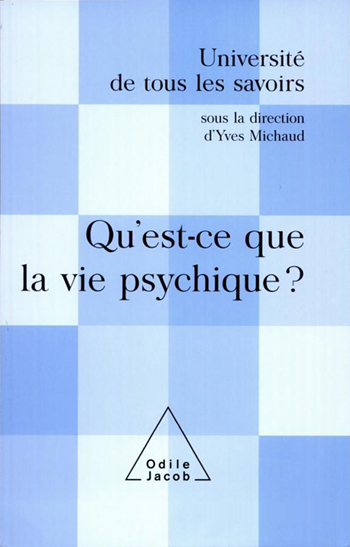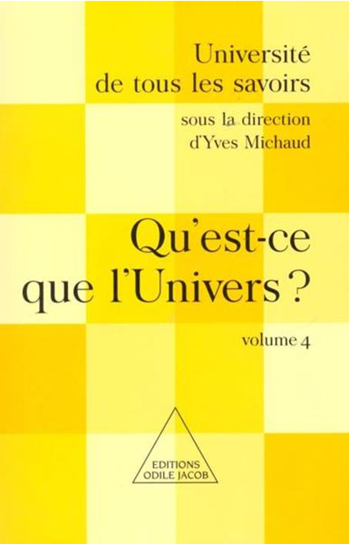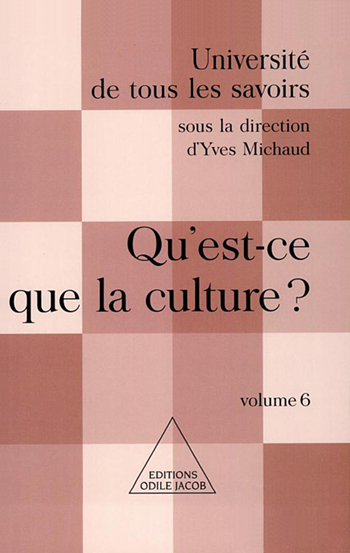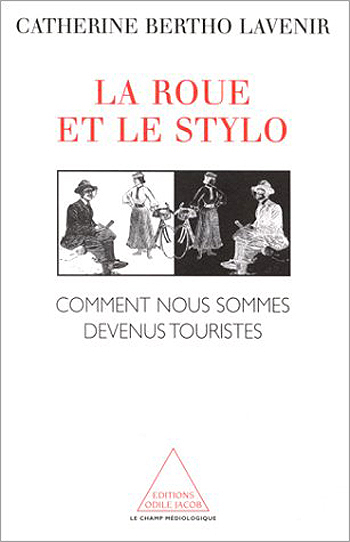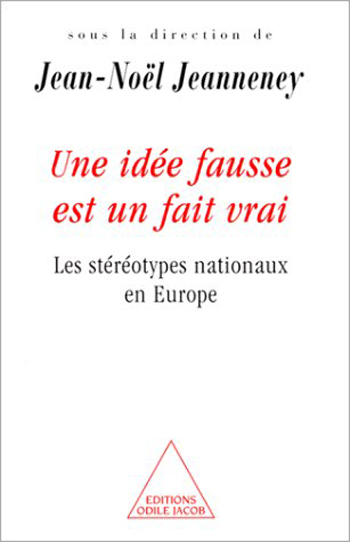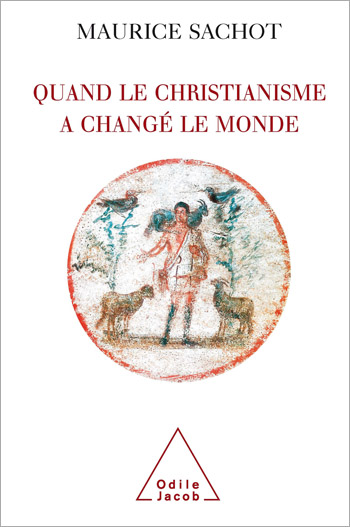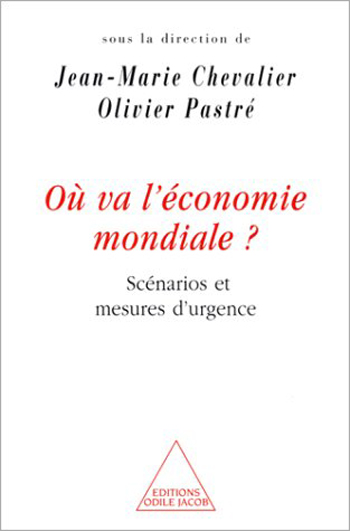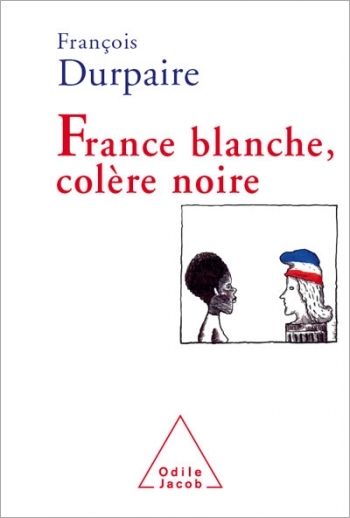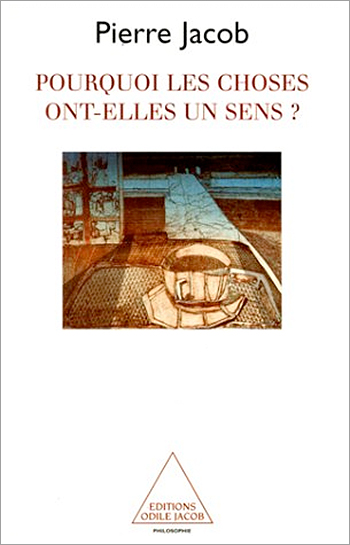Human Sciences All books
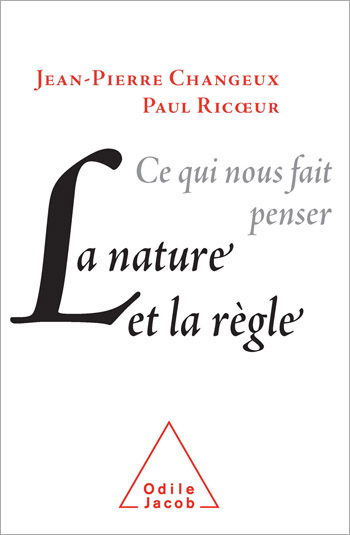
Jean-Pierre Changeux, Paul Ricœur
What Makes Us Think Nature and Rules
'The intention of this book was to put a scientist and a philosopher face to face and spark a dialogue between them on neuroscience, on their results and projects, and their ability to carry out a debate on ethics, its norms, and on peace. In France, ideas are rarely openly discussed. Serious debates are too often hindered by dogmatic statements, one-sided criticisms, incomprehensible discussions and glib mockery, with little or no thought for the solidity of the arguments, which aim only to appear plausible or worthy of being argued, rather than convincing. A totally free and open dialogue between a scientist and a philosopher is necessarily a highly unusual experience for both.' Paul Ricur and Jean-Pierre Changeux Paul Ricur is an honorary professor at the University of Paris-X and an emeritus professor at the University of Chicago. Jean-Pierre Changeux, a member of the French Academy of Science, teaches at the College of France and the Pasteur Institute.
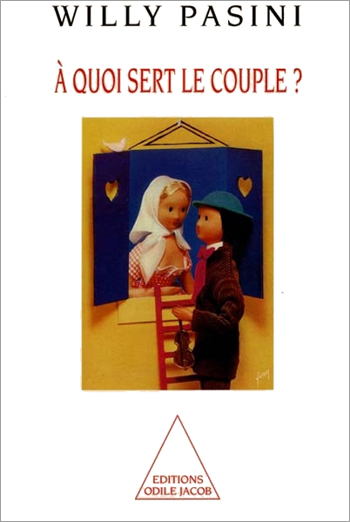
Willy Pasini
What use do couples serve ?
What use do couples serve? How can a solid couple be distinguished from a fragile one? Is 'living together' preferable to marriage? How can a healthy balance be maintained between intimacy and autonomy? How can passion be made to last? Can shaky bonds be salvaged? When should a therapist be consulted and how can the most suitable therapy for a specific case be chosen? At a time when the couple as a unit is undergoing a severe crisis, this book demonstrates that if every love story carries with it a risk, happiness within the couple is nevertheless possible. Willy Pasini is the founder of the European Federation of Sexology. He teaches psychiatry and medical psychology at the University of Geneva.
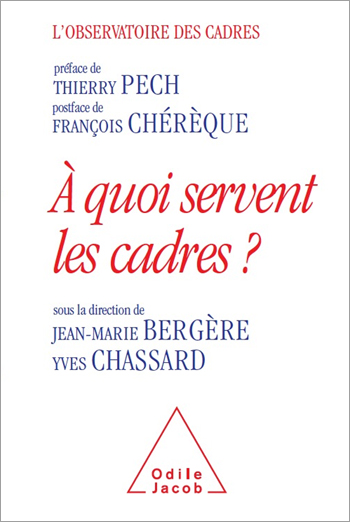
Observatoire des cadres
What Use Is Management? Questioning management tactics
What is management’s future role in a rapidly changing business world?
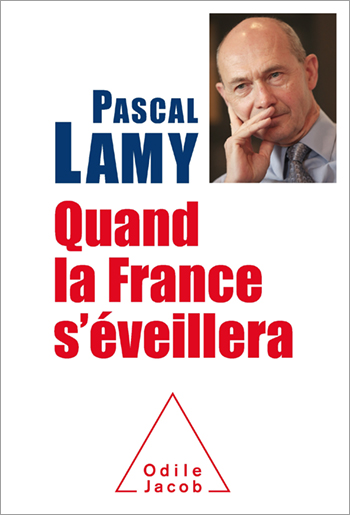
Pascal Lamy
when France will wake
A new view of France by Pascal Lamy, former director-general of the World Trade Organisation and an expert on international trade issues
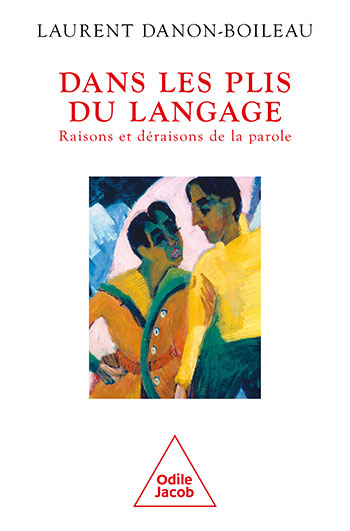
Laurent Danon-Boileau
When the Subject Speaks
Why do we speak? This banal question nonetheless encompasses a multiplicity of meanings.
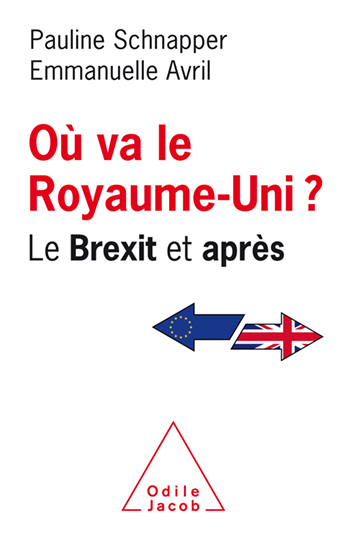
Pauline Schnapper, Emmanuelle Avril
Where is the United Kingdom Headed Brexit and Beyond
A burning reality. Brexit, which was supposed to take effect officially on 29 March 2019, has been postponed to October, but already its effects are being felt, and this is only the beginning!
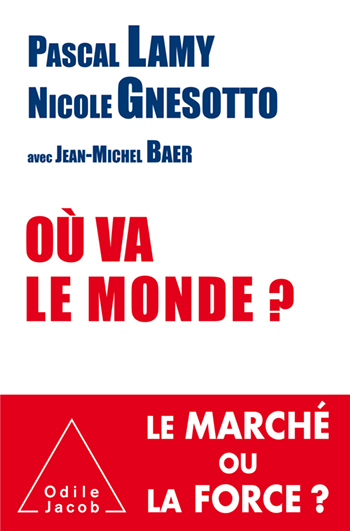
Pascal Lamy, Jean-Michel Baer, Nicole Gnesotto
where is the world going? Two views of the world and of globalization
Fascinating and accessible analyses to better understand today’s world and its upheavals...
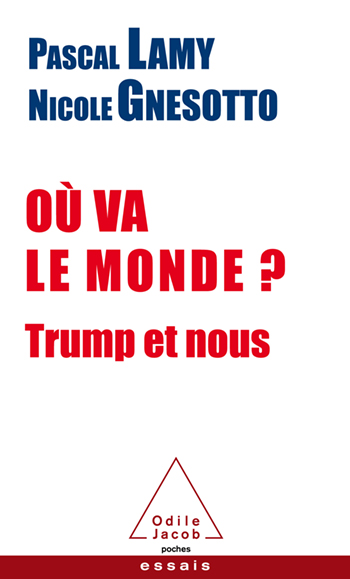
Pascal Lamy, Nicole Gnesotto
where is the world going? Trump with Us
Fascinating and accessible analyses to better understand today’s world and its upheavals...
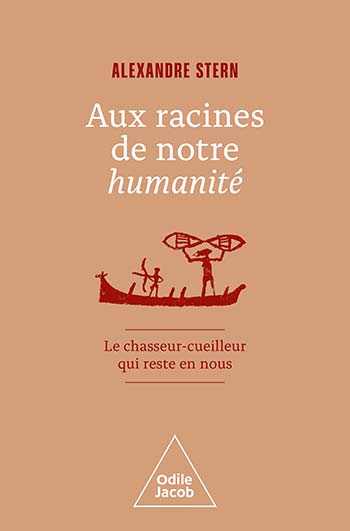
Alexandre Stern
Who Are You, Homo sapiens? Understanding Our Nature In Order to Live Better
After telling how the art of cooking had humanized, civilized our ancestral apes, Alexandre Stern explores the roots of our humanity to better examine our modern practices and ways of life.
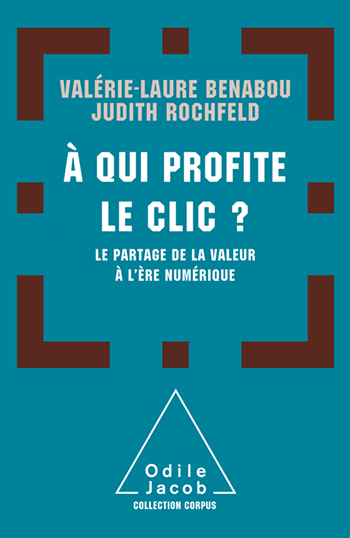
Judith Rochfeld, Valérie-Laure Benabou
Who Profits When You Click? How Value Is Distributed on the Net
The battle for control over digital data
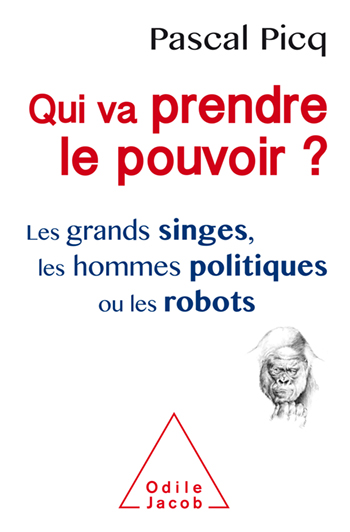
Pascal Picq
Who will take power? Great apes, Politicians or Robots
Like Yuval Noah Harari’s Sapiens: A Brief History of Humankind… with a dash of humour and a knowledge of prehistory too! Transhumanism, which is at the core of this book, is the subject of the moment.
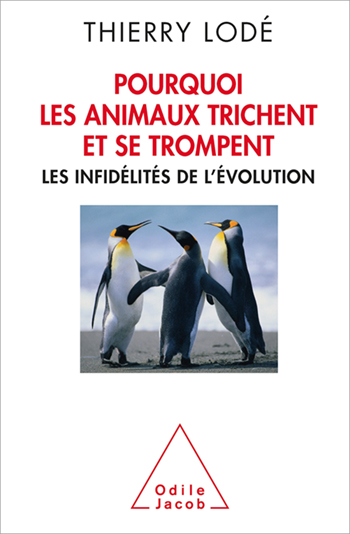
Thierry Lodé
Why Animals Cheat and Make Mistakes
A brilliant contribution to evolutionary biology and to the study of animal behaviour, written in a lively, vivid style
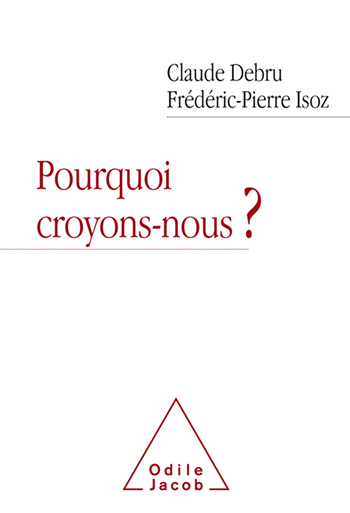
Claude Debru, Frédéric-Pierre Isoz
Why Do We Believe?
This book is a dialogue between a philosopher and a psychoanalyst.
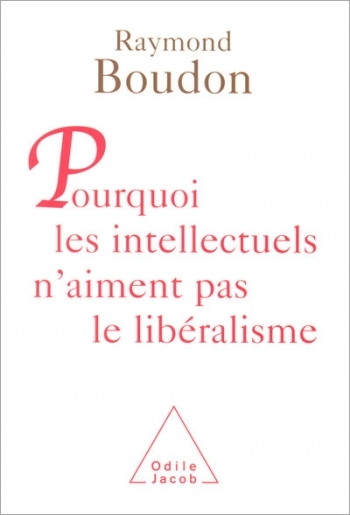
Raymond Boudon
Why intellectual peoples don't like liberalism
Given the intellectual force of liberalism, its political appeal, its economic effectiveness and its historical significance, why is it so unpopular among French intellectuals? Why does it elicit so little serious discussion? And why is it the object of so much confusion, so many clichés and misunderstandings? Is it simply out of resentment, because intellectuals feel that the market does not afford them the material and symbolic rewards that they believe they deserve? Is it just because they prefer to play a critical role in a society where capitalism is triumphant? Perhaps, but these reasons do not explain everything and they certainly dont explain the systematic rejection of liberal thought in France. A sociologist of knowledge rather than of social determinism, and a specialist in belief systems, Raymond Boudon ruthlessly analyses the cognitive mechanisms that make liberalism so hateful in the eyes of French intellectuals. The result is a keen, detailed review of the clichés that have encumbered discussions for more than thirty years. Raymond Boudon, a professor at the University of Paris-IV, is a member of the Académie des Sciences Morales et Politiques. He us the author of numerous works, most notably LInégalité des chances, La logique du social, LIdéologie ou lorigine des idées reçues, LArt de se persuader, Le Sens des valeurs and Déclin de la morale? Déclin des valeurs. He is the co-author, with R. Leroux, of Y a-t-il encore une sociologie?
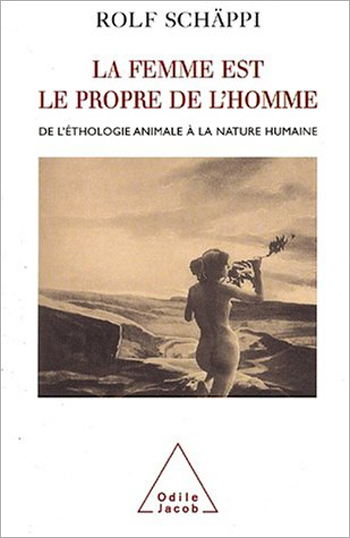
Rolf Schäppi
Woman is the Characteristic of Man From Animal Ethology to Human Nature
In this book, the author points out that although human beings are both mammals and primates, they differ in many significant ways from the other mammals and primates. Besides speech, laughter and the ability to use tools, the species Homo sapiens differs from its closest zoological cousins by three additional characteristics, which are less frequently cited because they are found only in the female. These are the female silhouette, hidden strus and the menopause. Rolf Schäppi is a psychiatrist and ethologist.
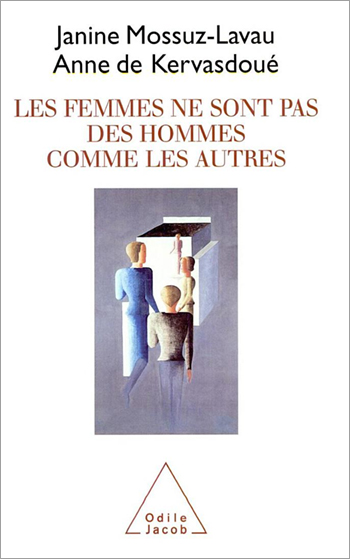
Janine Mossuz-Lavau, Anne de Kervasdoué
Women are Not Just Men
The changes which have come to be in the second half of the 20th century have taken women a long ways from the profile adopted by their mothers. Do all these transformations lead us to trace the portrait of a woman who has become a clone of men ? We can ask ourselves this question when we remember the arguments of feminists in the 70's employing the "egalitarian" themes of Simone de Beauvoir. More recently, some have gone so far as to announce the coming of an "androgynous" society. But what do the women and the men of this country think about all this ? How do women see themselves in relation to men ? How do they define themselves and how do they describe the men of their lives ? A very pointed realization of today's female identity. Janine Mossuz-Lavau is Director of Research at the CNRS.
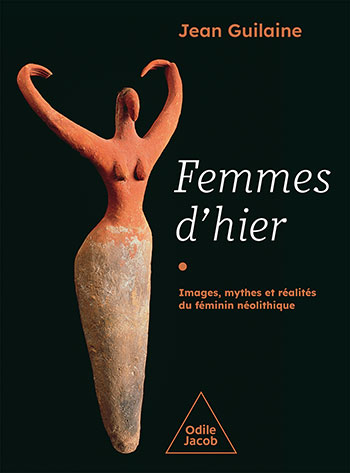
Jean Guilaine
Women of the Past Images, myths and realities of the Neolithic woman
A book by one of the most renowned specialists of the protohistoric period, to help understand women’s place in the first sedentary societies of the Neolithic period.

Barbara Polla
Women Who Break The Mould A book about women for women
A gallery of emblematic portraits of mould-breaking women, among them one of the great explorer Alexandra David-Néel whose motto was "Go where your heart takes you and follow your eyes." A campaigning work that will allow every one of us to break free of our shackles and to each make our contribution, as best we can, to a more open, more harmonious and more loving society.
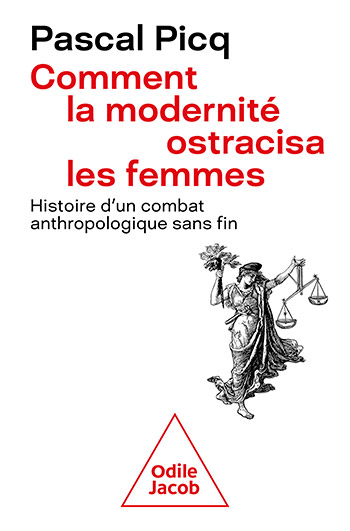
Pascal Picq
Women, Modernity and Progress
A book that looks back at history from an evolutionary perspective, by bringing women to the forefront of history and rejecting gender stereotypes that are often endorsed by historians themselves.
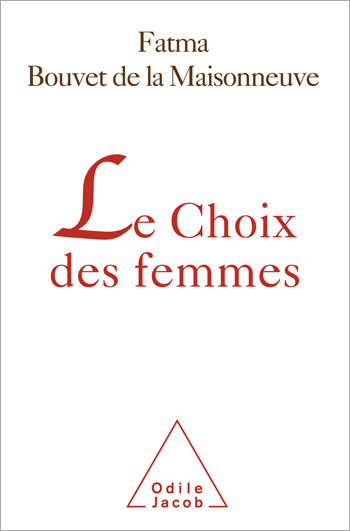
Fatma Bouvet de la Maisonneuve
Women's choice
woman physician-psychiatrist appraises the condition of women in today’s society.

